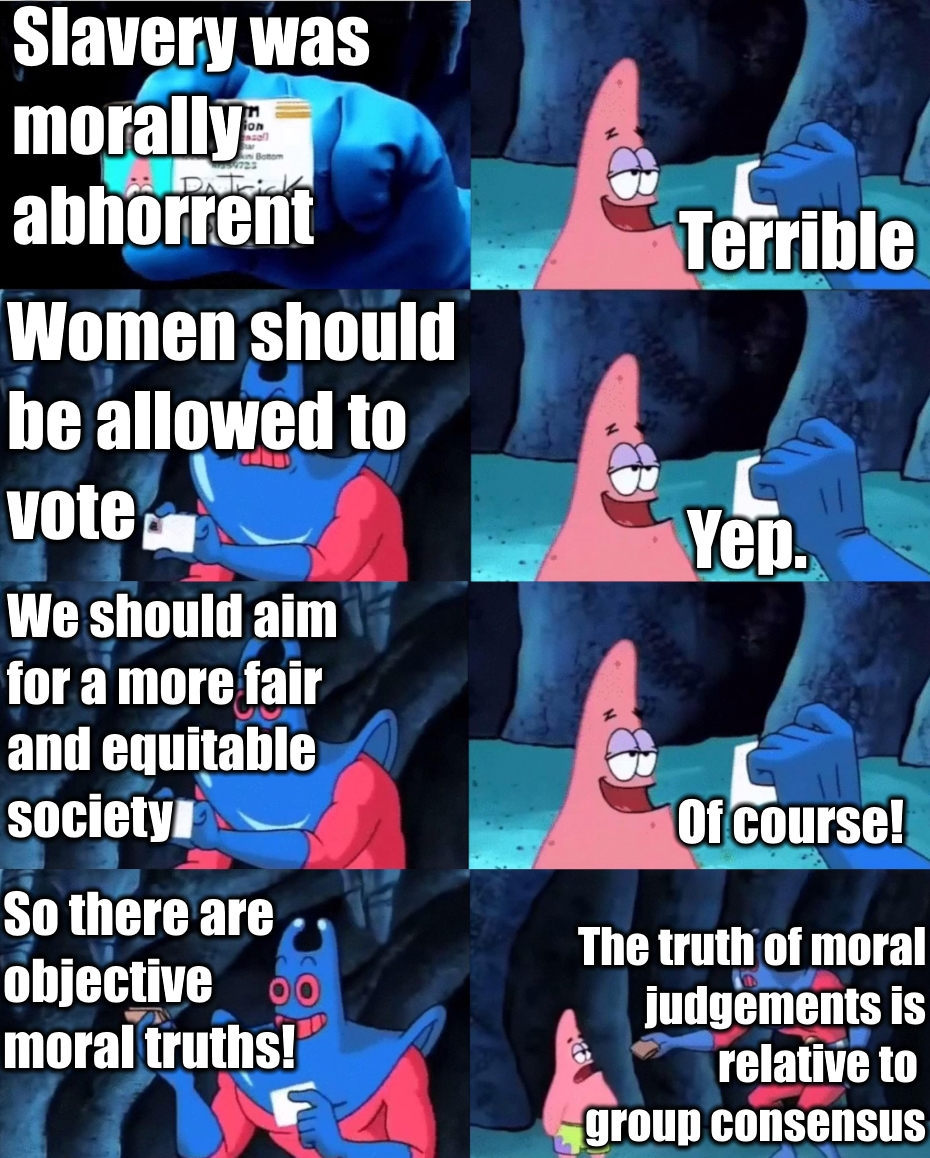Philosophy meme
Philosophy meme


Not sure why this got removed from 196lemmy..blahaj.zone but it would be real nice if moderation on Lemmy gave you some sort of notification of what you did wrong. Like an automatic DM or something
Philosophy meme


Not sure why this got removed from 196lemmy..blahaj.zone but it would be real nice if moderation on Lemmy gave you some sort of notification of what you did wrong. Like an automatic DM or something
You're viewing a single thread.
So is this meant to be a cryptic argument against objective morality and for less ethical actions? Group consensus and moral relativity can apply to... Idk, the Nazi regime?
OR is this an argument saying we need more people to agree about what is "objectively" moral if we want it to become true? Democratically around consensus?
I imagine this argument has been used in bad faith more than it has been used in good faith.
Patrick here is meant to represent most people who lean towards moral relativism but haven't thought it through. In their daily lives they think that certain things are obviously bad (e.g., chattel slavery) and they also think that we should work to better our society. But then they also think that there is no such thing as objective good and bad; morality is just relative to some group consensus.
But if moral relativism is true, then you can't say that slavery is universally bad; slavery was a morally acceptable action for the slave owners because they agreed that black people are inferior. Similarly, there is no motivation to work towards a "better" society, because what we have now is exactly as morally good as anything else we could agree on in the future. The objection is that moral relativism is incompatible with our conception of moral progress as an objective good.
First of all I think this was very helpful and was educational for me. But I can also see that people are always making moral objections. Many people did want to abolish slavery for many years before it happened. Doesn't that standard mean slavery was also morally wrong in a relative way? Or does it only matter what the slaveholder believes about their action?
All versions will agree that morality depends on some group consensus. Different variations of moral relativism could vary by which group consensus matters. To simplify things, let's imagine a world in which there was only one slave in a society of people who thought slavery was a good thing. In this scenario, the moral relativist would say that slavery is good for this community, because these people agree that slavery is a good thing. Even though the one slave strongly disagrees with everyone in their community.
This is an obvious problem with moral relativism, but people in this thread either think that morality is subjective by definition or think epistemological uncertainty about morality entails moral relativism.